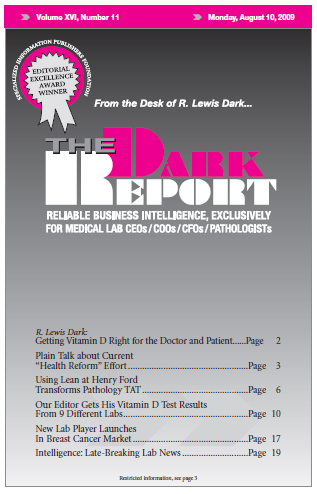CEO SUMMARY: Having opened its CLIA-licensed laboratory in Huntington Beach, California, Agendia, Inc., becomes the newest competitor to enter the market for breast cancer testing. Its proprietary assay looks at 70 genes to assess the risk of recurrence. The company expects to collaborate with local pathologists, as its test requires fresh tissue and can provide …
New Lab Player Launches In Breast Cancer Market Read More »
To access this post, you must purchase The Dark Report.


